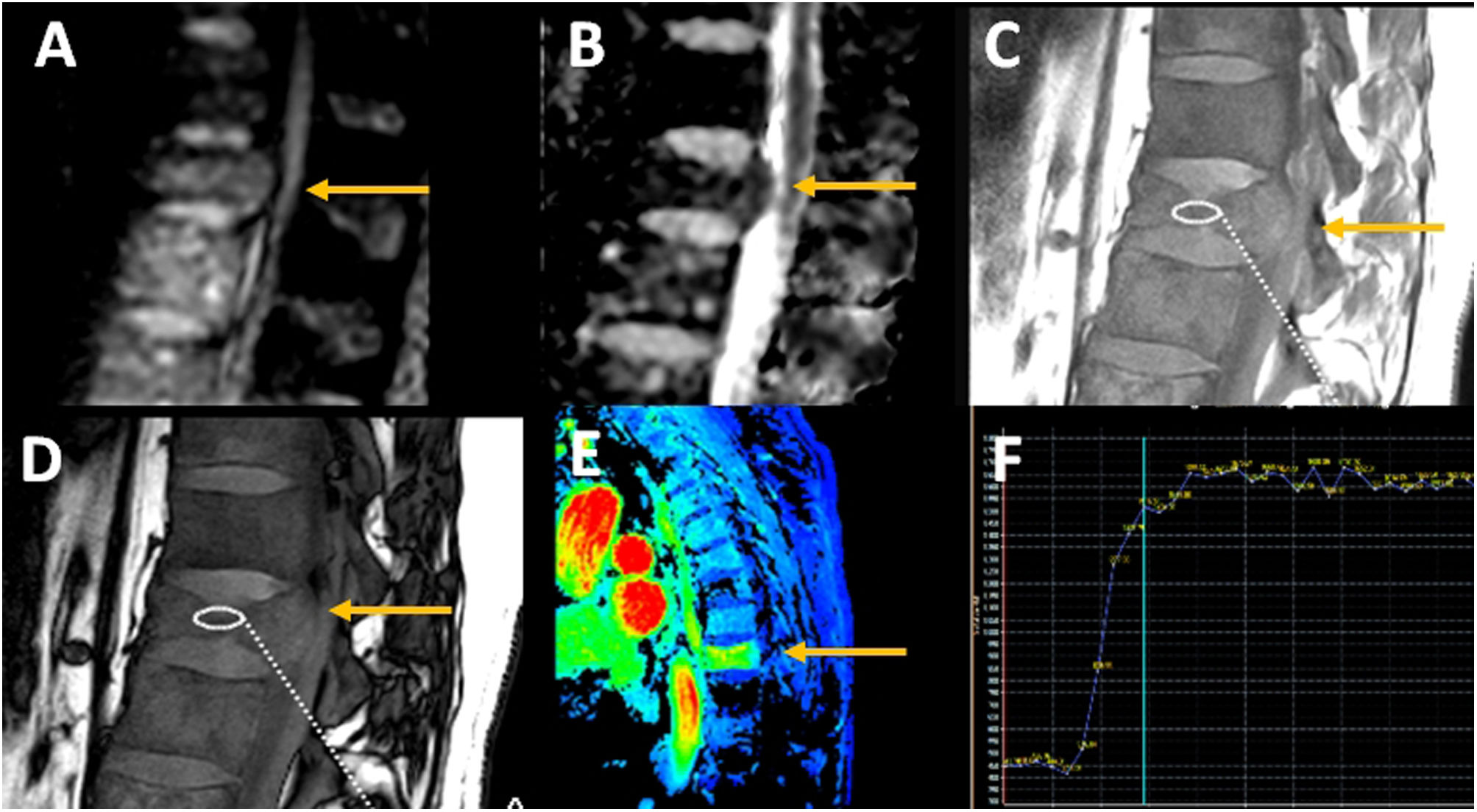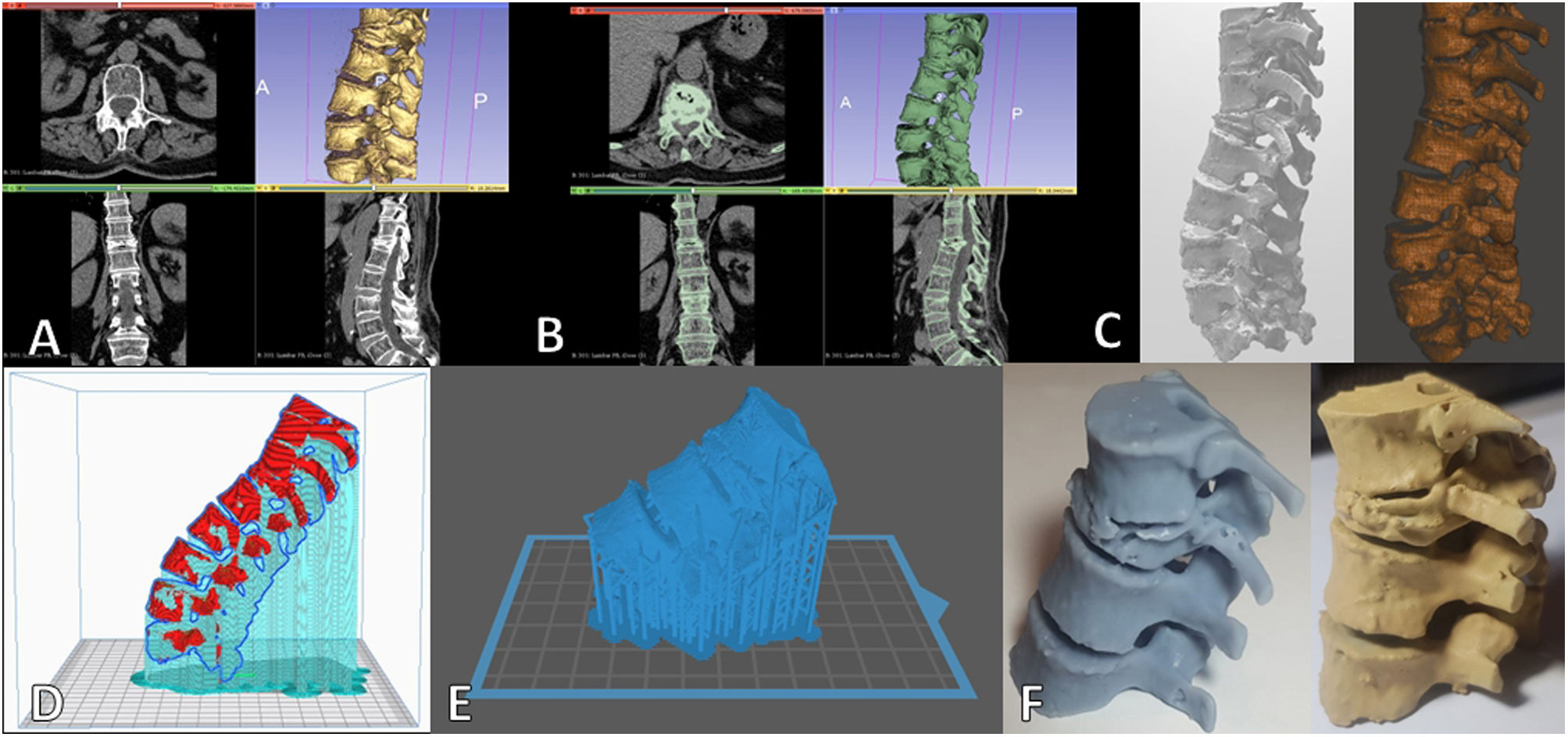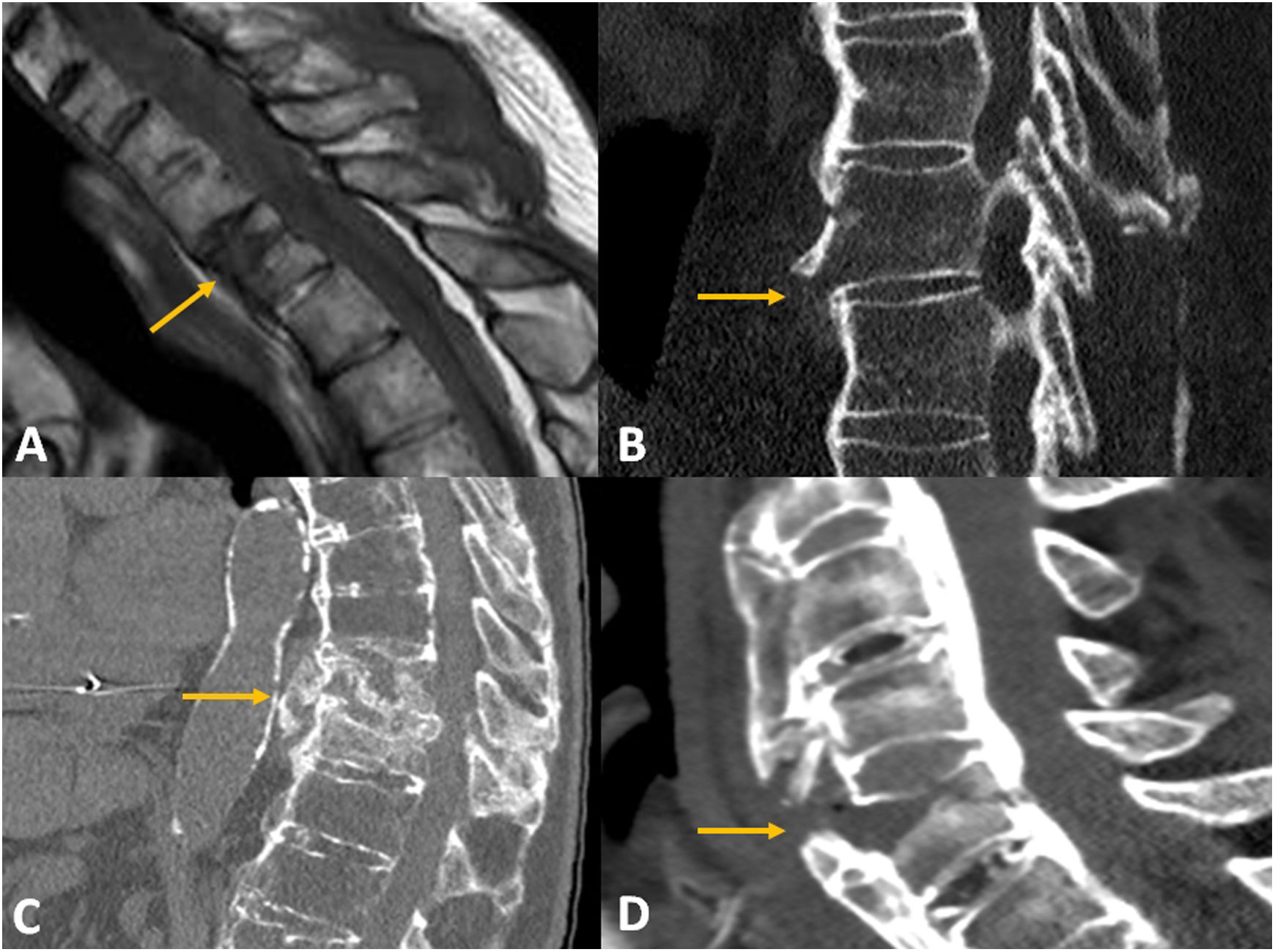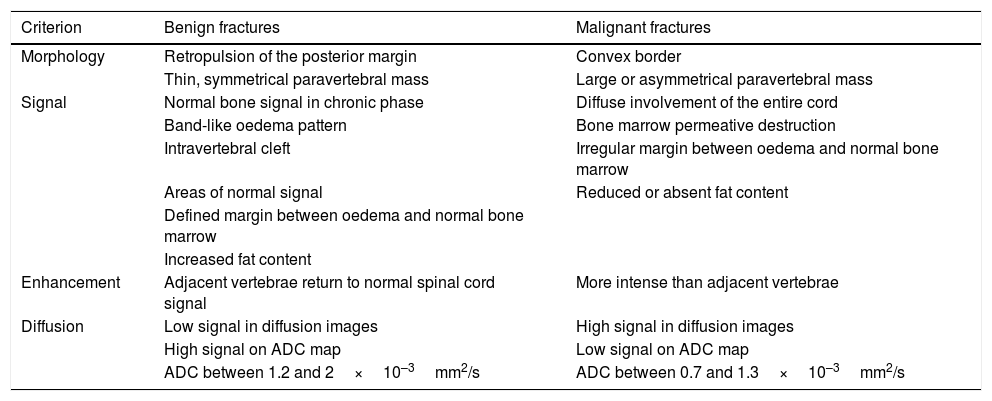Low-energy vertebral fractures pose a diagnostic challenge for the radiologist due to their often-inadvertent nature and often subtle imaging semiology. However, the diagnosis of this type of fractures can be decisive, not only because it allows targeted treatment to prevent complications, but also because of the possibility of diagnosing systemic pathologies such as osteoporosis or metastatic disease. Pharmacological treatment in the first case has been shown to prevent the development of other fractures and complications, while percutaneous treatments and various oncological therapies can be an alternative in the second case. Therefore, it is necessary to know the epidemiology and typical imaging findings of this type of fractures. The objective of this work is to review the imaging diagnosis of low-energy fractures, with special emphasis on the characteristics that should be outlined in the radiological report to guide a specific diagnosis that favours and optimizes the treatment of patients suffering of low energy fractures.
Las fracturas vertebrales de baja energía suponen un reto diagnóstico para el radiólogo debido a su naturaleza, frecuentemente inadvertida, y a su semiología en imagen, a menudo sutil. Sin embargo, el diagnóstico de este tipo de fracturas puede resultar determinante, no solo por permitir realizar un tratamiento dirigido que evite complicaciones, sino también por la posibilidad de diagnosticar patologías sistémicas como la osteoporosis o la enfermedad metastásica. El tratamiento farmacológico en el primer caso ha demostrado evitar el desarrollo de otras fracturas y complicaciones, mientras que los tratamientos percutáneos y las diversas terapias oncológicas pueden ser una alternativa en el segundo caso. Por lo tanto, es preciso conocer la epidemiología y los hallazgos por imagen de este tipo de fracturas. El objetivo de este trabajo es revisar el diagnóstico por imagen de las fracturas de baja energía, con especial énfasis en las características que deben reseñarse en el informe radiológico para orientar a un diagnóstico específico que favorezca y optimice el tratamiento de los pacientes que padecen este tipo de fracturas.

















